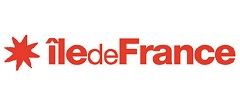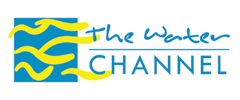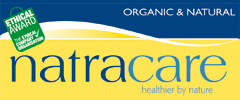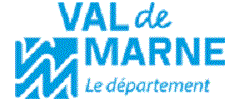WECF trained Energy Cooperatives founded in rural Georgia
Four community based groups have started the formation of energy cooperatives as a way to finance Solar Water Heaters in rural areas of Georgia
19.04.2016 |

The speakers and some of the participants of the 2nd cooperative workshop at the RCDA resource centre. The solar water heater in the background provides the resource centre with warm water.
Four community based groups have started the formation of energy cooperatives as a way to finance Solar Water Heaters in rural areas of Georgia.
The groups are based in resource centres in Khobi, Khoni, Akhaltsikhe and Mtskheta and have been trained extensively to construct, install, maintain and monitor Solar Water Heaters and small insulation measures by the EU funded project ‘Switch to the Sun, live in Comfort’.
The resource centres are looking for ways to become economically sustainable and to offer energy efficient and affordable solutions to a broad citizenship. They are supported by WECF and its partners The Greens Movement of Georgia/ Friends of the Earth Georgia, RCDA, SDCA, SEMA and Ethic Finance, who conducted two workshops on setting up energy cooperatives in Georgia. Some of the partners have participated in a study visit to Germany on Energy Cooperatives in 2014.
The first workshop between 8th and 10th of November 2015 in RCDA resource center in Misaktieli, Mtskheta, Georgia gave a general introduction in energy cooperatives; what they are and how they work in other countries. First ideas were collected on how to set up energy cooperatives in Georgia. A cooperative is a voluntary association of persons with the aim to generate benefits for the members through a common business operation. All participants agreed that the most promising technology to start with for energy cooperatives in Georgia is to build and sell solar water heaters and to provide the necessary services in cooperation with the existing resource centres. This can be extended over time with insulation measures, energy audits, energy efficient stoves, solar food dryers, and possibly photovoltaic projects. The producers, clients and other interested people can buy a share of the cooperative. Members will receive income from dividends; have better conditions for renewable technologies, access to improved services, trainings and technical know-how, employment opportunities within the cooperative as well as less expenses on energy and firewood.
Thus energy cooperatives will expand the share of renewable energy technologies, generate employment and simplify access to the technologies for members. Energy cooperatives are a sustainable form of social businesses, owned by the workers and clients alike, generating income and creating access to safe and clean energy for rural areas. They contribute to the decentralization of energy supply, are inherently democratic, giving the people power over their own energy supply.
WECF and partners have been preparing a gender-sensitive community-based National Appropriate Mitigation Action (NAMA) on sustainable rural energy in cooperation with the Ministry of Environment and Natural Resources. The Energy cooperatives can play a key role in supplying the planned 11.500 solar water heaters, stoves and insulation measures, and carry out a part of the MRV.
Before the second workshop, all four potential energy cooperatives had meetings within their regions to inform the local community and municipality about their ideas. The responses were very positive and potential members were identified. Some had already developed draft statutes and membership forms and worked out ideas about concrete business models.
From 15th to 16th of December the second workshop took place. The four potential energy cooperatives exchanged their experiences and problems as well as first business models and statutes. The participants also worked on marketing strategies, business plans and fundraising opportunities.
The next step was then to register the different energy cooperatives. After the registration process, a follow-up workshop took place in the beginning of March 2016 to exchange the experience so far.
The workshops took place in the frame of the project ‘Switch to the Sun, live in comfort’ and WECF, RCDA, Ethic Finance and a board member of the German Energy Cooperative ‘Bayern Energie’ were the main facilitators. The activities were carried out within the frame of the projects: ‘Workshop on energy cooperatives in Georgia’ and ‘Switch to the Sun – live in Comfort’ and is funded by the ‘Auswärtiges Amt, the European Union, the GLS Treuhand and the German provider of green electricity “Elektrizitätswerke Schönau”(EWS).
Related News
Rural Georgians look to the sun to ease energy poverty
Video (6 min): by Deutsche Welle & Maria Lesser on our project in Georgia
04.06.2018
Implementing Agenda 2030 in Georgia: Where Are We Now?
WECF organised with Georgian government and the UN a workshop on the Sustainable Development Goals in Tbilisi, 19-21 February 2018
22.02.2018 | Tbilisi, Georgia
Round table discussion Violence Against Women and Economic Development
The round table treated the topic of Violence against women and Economic Development
13.12.2017
Sustainable Development Goal # 5 Gender Assessment in Georgia
This research was conducted by the organization We Research within the auspices of the project ‘’Women 2030’’ funded by the European Union and implemented by WECF International
27.09.2017
Feasibility study of gender-sensitive energy cooperatives in Georgia, Ukraine, Armenia and Moldova
New report by WECF offers report offers an overview of the feasibility of gender-sensitive energy cooperatives in Georgia, Ukraine, Armenia and Moldova.
12.05.2017






































